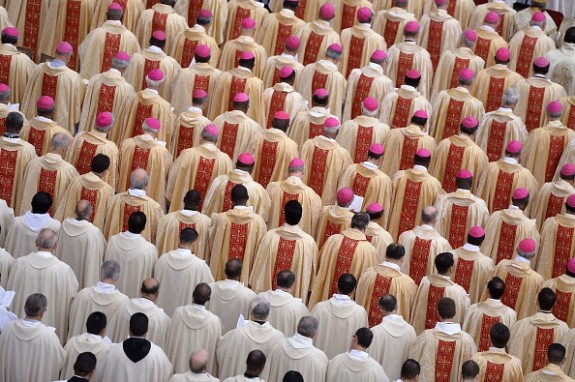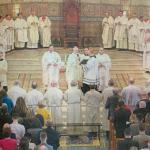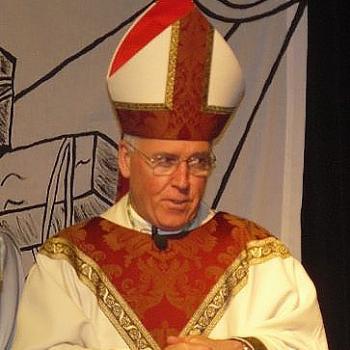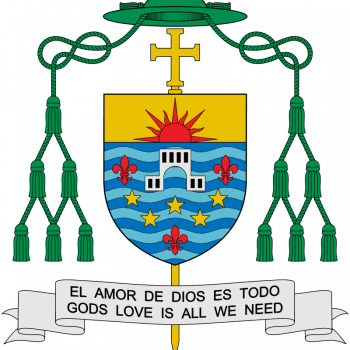This is an idea getting more and more traction—and now it’s popped up on The New York Times op-ed page, from Daniel E. Burns, an associate professor of politics at the University of Dallas and a fellow at the Catholic University of America’s Institute for Human Ecology:
The recent revelations of corruption, abuse and neglect within the Catholic Church hierarchy have been a trial for every American Catholic. Abuse victims and their families have suffered unspeakably. Next to them, the greatest sufferers have surely been our innocent American clergymen, who bear the brunt of the shame, contempt, and anger directed at the church every day.
A great majority of our clergymen share our outrage at clerical abuse. Priests all suffer for the sins of their brothers. Married deacons see their own children and grandchildren in the faces of the victims.
To Catholics, our American clergy is an essential link in a living chain of witnesses stretching back to the Apostles. Nearly all of us have had our faith shaped by at least one priest or deacon who showed us what it means to live the Gospel. Today we are experiencing a crisis of trust in our bishops. It is not, as far as I can see, a crisis of trust in the majority of our clergymen.
The clergy is therefore in a position to restore our trust in the bishops. But first it would have to have a say in who those bishops are….
…Our American priests and deacons should be picking their own bishops. If they think so, too, then they should tell our current bishops, who can regain some credibility by demanding this of Rome. When each incumbent bishop reaches retirement, his own clergy can elect his successor. West Virginia and Washington, D.C., would be great places to begin immediately.
Rome will of course always retain the right to veto our clergy’s choice. But the American laity deserve to know who that choice was. And if Rome does veto, we will want to know why.
Those who make decisions in our church should have to live with their consequences. Our clergymen are more or less stuck in their own diocese. They know that their own life’s happiness will always be tied to their local church’s well-being. The same was true of bishops throughout much of Catholic history. It ought to be more true today.
Worth noting: bishops in Eastern Catholic churches are selected differently than those in the Latin rite. Wikipedia offers this handy summary:
There are 23 Eastern Catholic Churches totalling about 20 million people that are in communion with the Holy See but their liturgy and other practices are different. A patriarchal Eastern Catholic church itself elects its bishops who are to serve within its own territory, but other bishops are appointed by the Pope. Before the election of a bishop, the patriarchal synod considers the names proposed by its members and draws up a list of those it considers to be valid candidates for episcopacy; this is communicated to the Pope and any name for which he refuses his assent is removed from the list. When the synod then comes to elect a bishop, no further procedure is required if the person chosen is on the list; but if he is not on the list, the assent of the Pope is needed before asking the newly elected to accept his election. The same arrangement holds for a Church headed by a Major Archbishop. In the official bulletins and news media of the Holy See, these appointments are published as decisions of the Eastern Church in question, not of the Pope. The procedure for appointing bishops of other Eastern Churches and those bishops of patriarchal and major archiepiscopal Churches who are to serve outside the territory of the Church in question is similar to that for Latin bishops, and the appointments are published as acts of the Pope.













